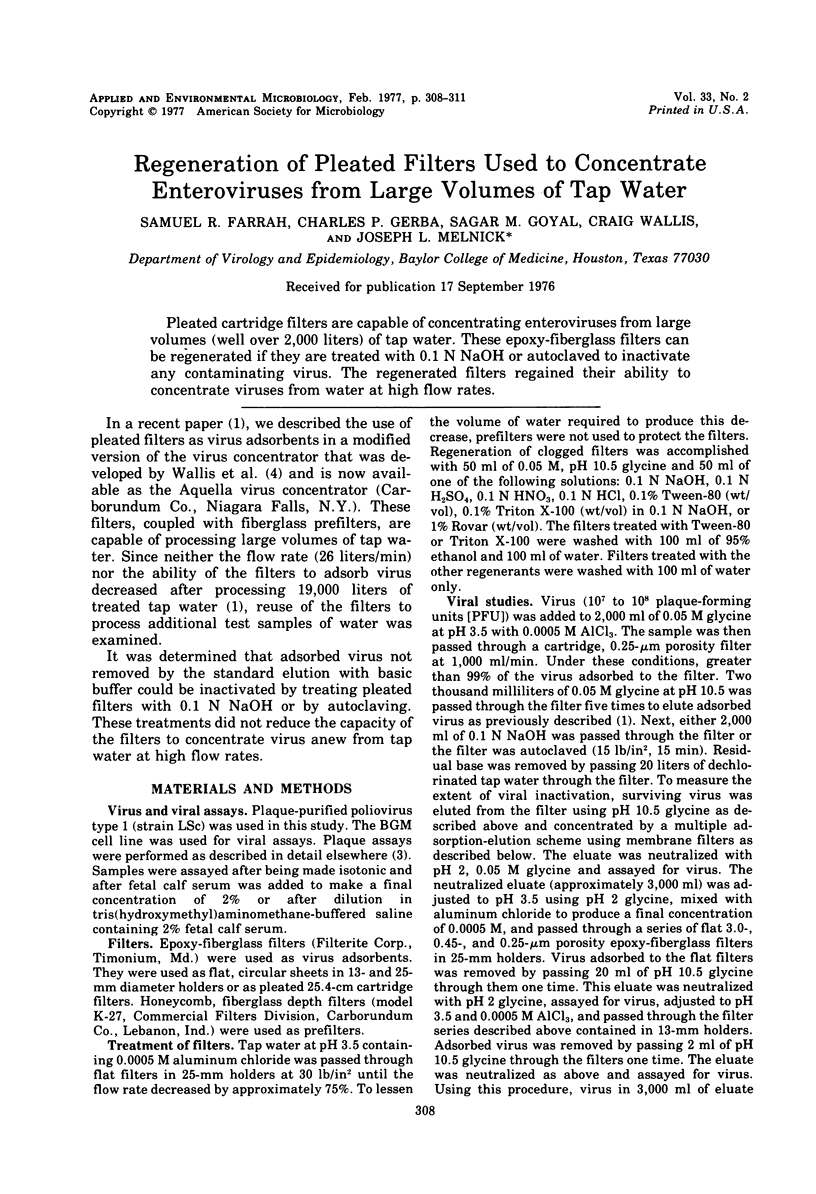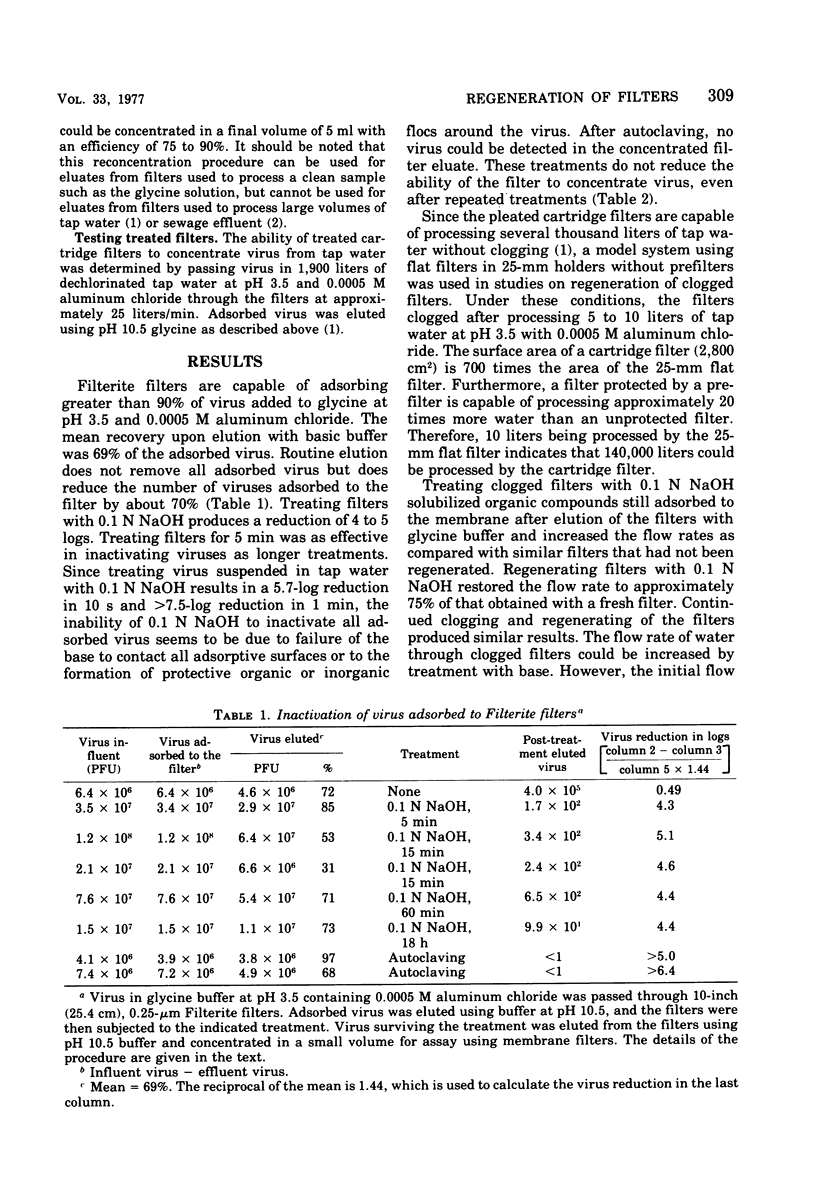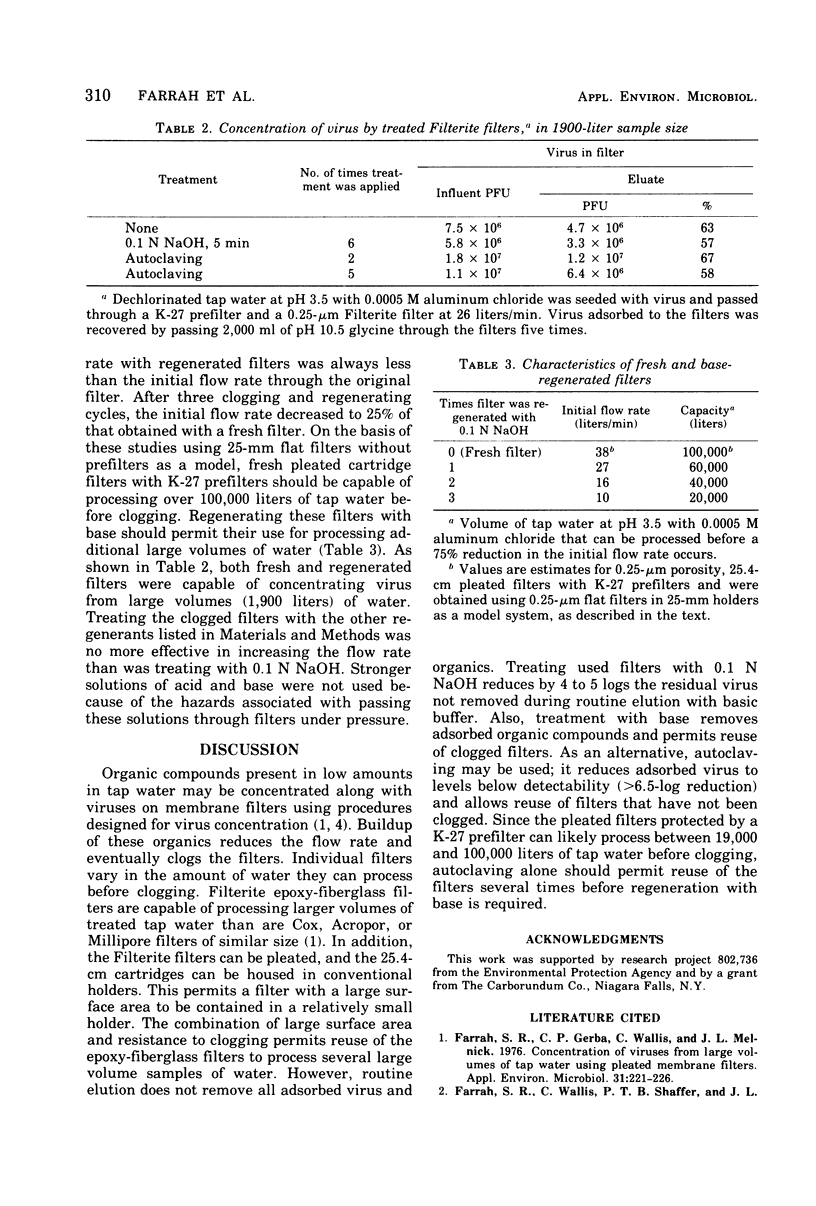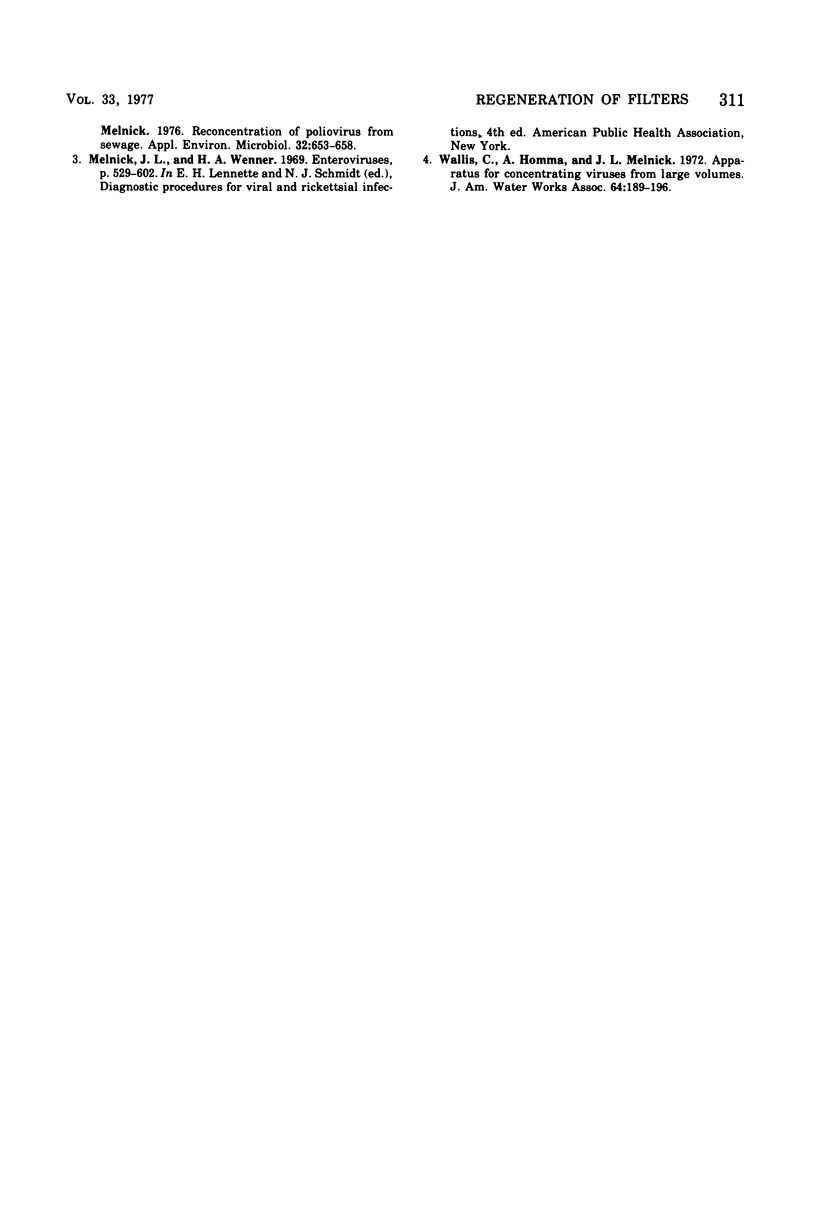Abstract
Pleated cartridge filters are capable of concentrating enteroviruses from large volumes (well over 2,000 liters) of tap water. These epoxy-fiberglass filters can be regenerated if they are treated with 0.1 N NaOH or autoclaved to inactivate any contaminating virus. The regenerated filters regained their ability to concentrate viruses from water at high flow rates.
Full text
PDF



Selected References
These references are in PubMed. This may not be the complete list of references from this article.
- Farrah S. R., Gerba C. P., Wallis C., Melnick J. L. Concentration of viruses from large volumes of tap water using pleated membrane filters. Appl Environ Microbiol. 1976 Feb;31(2):221–226. doi: 10.1128/aem.31.2.221-226.1976. [DOI] [PMC free article] [PubMed] [Google Scholar]
- Farrah S., Wallis C., Shaffer P. T., Melnick J. L. Reconcentration of poliovirus from sewage. Appl Environ Microbiol. 1976 Nov;32(5):653–658. doi: 10.1128/aem.32.5.653-658.1976. [DOI] [PMC free article] [PubMed] [Google Scholar]


